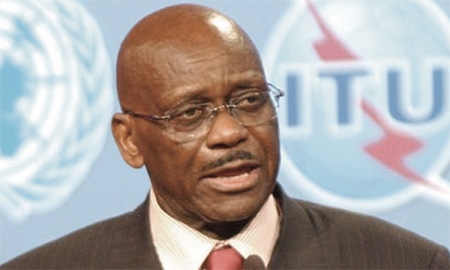
Jean-François Ntoutoume Emane came to the mayor’s office in 2008 after a long, successful run in the national government as Prime Minister, presidential advisor, Minister for Commerce, as well as Minister for Civil Aviation.
He shares with us his plans and vision for Libreville, Gabon’s most important city politically, commercially, and culturally.
First of all, how is Libreville’s fate interconnected with that of the country? And, what projects are underway here that will help boost the national economy?
More than half of the total Gabonese population lives in Libreville. The country is almost completely depopulated in its inner lands. Thus, if one wants to promote the development, it has to be done through the development of the cities and particularly of the capital city Libreville. It is crucial to solve the problems in Libreville so that it can be not only the political capital of the country but beyond that, the economic engine of Gabon.
Libreville is also the largest port in the country, and we are about to construct another deep water port in Santa Clara (on the estuary, very close to Libreville), soon another port in Owendo will be used as a secondary port for Libreville. The government has planed to build a world-class airport on the plain of Oyane (also in the region of Libreville). Soon a free economic zone will be ready to host multinationals in various sectors of activity.
‘if one wants to promote the development, it has thereby to be done through the development of the cities and particularly of Libreville, as it is the main town and the capital of Gabon’
‘We have engineers, financial advisors, etc. and we need to provide jobs to come up to their qualifications’
‘Given that CAN soccer matches will be held here in 2012, we hope that for the year 2011 we will have more financial means to realize all the projects we have in the pipelines‘ |
What are the major improvements that would be necessary to improve the life standards of Libreville’s population?
We are waiting to have consequent budgets to achieve our goals and complete our projects because a budget of 15 or 16 billion CFAF [US$30.2-32.3 million]is definitely not enough for our high ambitions.
But Libreville’s problems are not only linked to the financial situation. We have a huge problem of human resources. Gabonese people have been studying in France, Morocco, United States, Canada. We have engineers, financial advisors, etc. and we need to provide jobs to come up to their qualifications.
Another issue an American could get involved in is waste management. Some poor areas in town do not have any access to the collections of waste. We need more financial means and professional solutions to compensate this lack. In order to keep our city clean, I have launched an operation of waste collection.
There are also problems of infrastructure (80% of our roadways are in a deplorable state), public transport, public hospitals, pre-school centers, and social security that we’re currently addressing. Given that CAN soccer matches will be held here in 2012, we hope that for the year 2011 we will have more financial means to realize all the projects we have in the pipelines.
With the demographic growth that Libreville is experiencing, one sees the appearance of some shantytowns. What is your strategy to find necessary financing for social housing?
The town hall has many communal lands. We have the ambition to arrange housing estate/subdivisions with the financial assistance of banks or financial institutions to build the lodging. Initially, we want to build residences for our agents and then if there are spare houses, they will be rented out or rented with a sale option. We want to make sure our employees have a decent home with decent utilities. If not, how can we expect them to excel at work?
You recently called Swiss company Webcor to rehabilitate markets. Please tell us more about this project.
Markets are a significant contributor to the small economy. We will build the largest market of central Africa and Black Africa. Webcor is a financial and agro-alimentary group from Switzerland. They are investing 26.27 billion CFAF in Libreville. The area of Peyrie is being leveled and cleared so they can build a large market with infrastructures affordable for every farmer. No more sale of pepper or manioc in the dust and mud of the roads.
What is being done in Libreville regarding the President’s Green Gabon initiative?
In 2008, I created a General Direction for the Environment and for risks prevention, parks and gardens. It is crucial that we try to transmit this wealth to the next generation and that we teach them that this green heritage must be not be only preserved but also renewed. Thus, we have launched the ‘Green Libreville Operation’, in which we’ve replanted palm trees. Man must use his genius to correct nature, to embellish nature, to replant the trees when they disappear.
0 COMMENTS